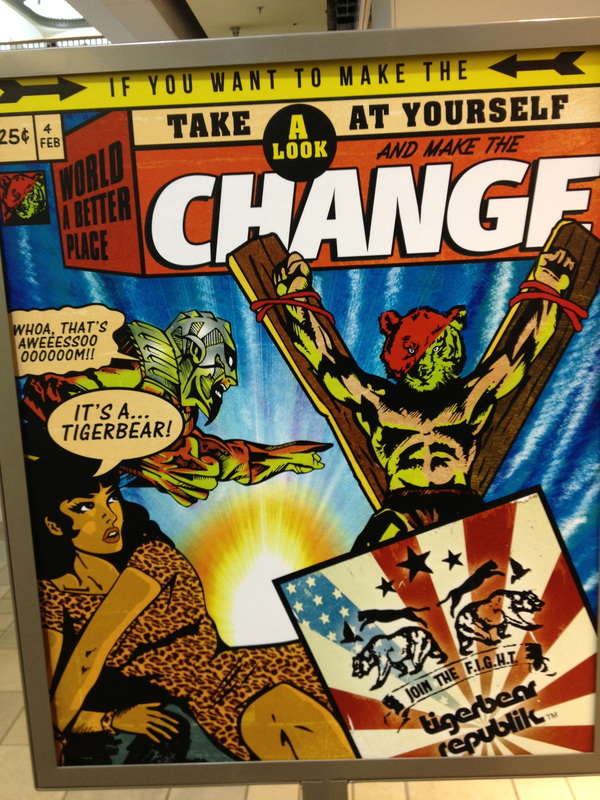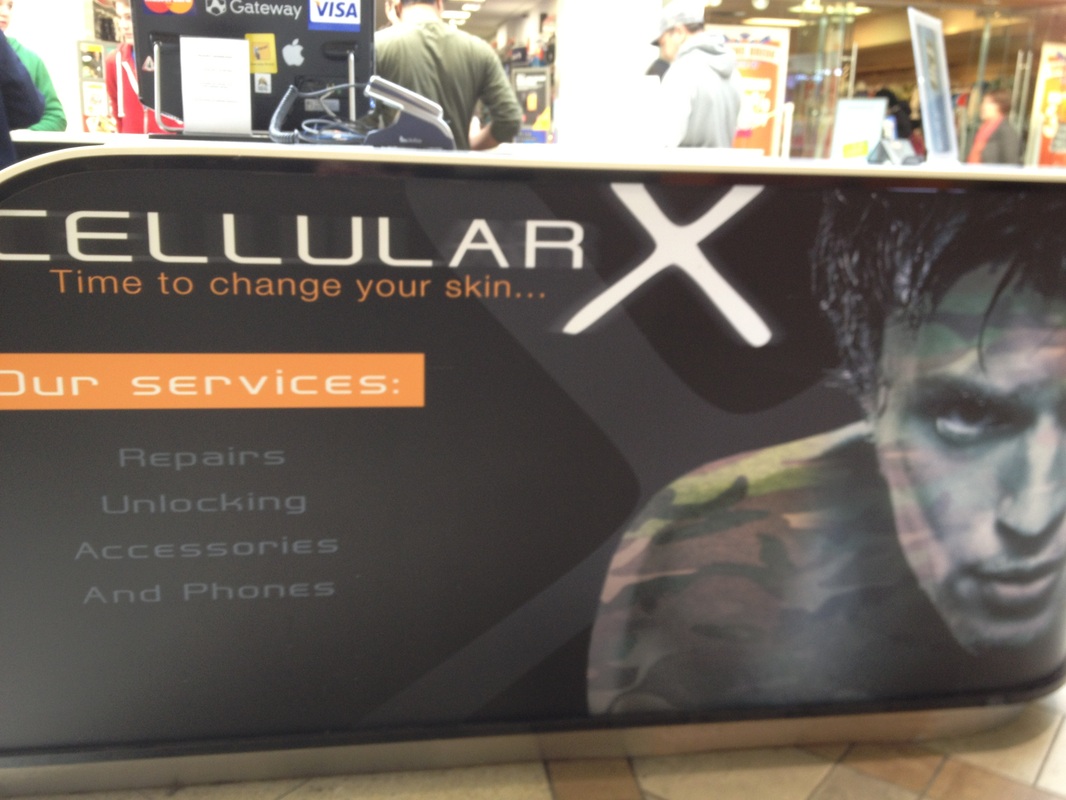Jennifer Mitzen describes ontological insecurity as the fear of uncertainty which in turn threatens identity - this threat against one's identity then transforms into a difficulty to act and maintain a self-conception (2006, 345). The feeling of social uncertainty has become what Ferrell, Hayward and Young call a “constant dynamo of existence” in this era of late modernity (2008, 58). Inequality between the poor and the rich continue to grow and the loss of secure first world income opportunities all contribute to this increased social uncertainty (57-59). This “dynamo of existence” is clearly observed with both locations of the Rideau Center and Bayshore Mall. The shopping centers are mutually filled with the same brands, particularly higher end gadgets, cosmetics and clothing. Those who spend there must have the money (or credit) to do so, yet, these spaces are located in either impoverished, low-income or areas without much money. The divide has never been made more clear – every day shoppers pass the homeless begging outside of the Rideau Center without so much as looking this person in the eyes and acknowledging them, let alone helping. Shoppers also drive past the low-income housing where the privacy of the tenants is no longer theirs – the privilege becomes the one with the dollar who can soothe their ontological insecurity by purchasing goods to remind themselves they are worth more than those people.
However, that which protects us, or what Brown calls the “veil [that] separates self from those that are external and therefore not self… [is also what provides] the most basic sense of ontological security” (2000, 63). When we are exposed to things outside ourselves, and how it compares to our idealized version of the world, we feel a sense of ontological insecurity (Brown, 2000, 63). Students, for example, are constantly faced with questioning their sense of self and comparing to their peers. The need to perform academically makes us ask ourselves “are we doing enough? Are we doing the right thing? How will we measure up?” (Jones, 2007, 216). This also reflects the reality of the mall and students “performativity” in the sense of if they are dressed in a certain way, or if they have the right product like the new iPhone – This question of “performativity” is what Jones argues that creates a sense of ontological insecurity (216). By purchasing the latest items or that new dress, students at uOttawa are setting themselves a part from their peers, attempting to one up them and calm their ontological insecurity. The reality is, however, that students are some of the poorest populations that frequent shopping centers, but with the use of credit or loans, money is not an object so long as the excitement of purchasing keeps burning and happiness is sustained. According to Curtis, this "consumption is the new drug people take to overcome these feelings [of economic and the resulting political impotence]…This is the message people receive over and over again in our culture: consumption equals happiness…” (1994, 16-17).
This same notion of performativity can be seen with new immigrants as well - questions of how to fit in are at the forefront and it can be seen within shopping centers worldwide. In Ottawa, for example, we observed and talked to some individuals known to us. What we saw were families or groups of friends coming in from the low income housing across from Bayshore, and either sit around with a coffee or go into stores to browse. Most of the time nothing was purchased, it seemed to be more of an experience of being in the mall and a process of killing time. However, once accustomed, the ontological insecurity kicks in - one family known to Yadgar struggled a lot with money, as they were new immigrants here no longer than three years, yet, they purchased new iPhones retailing over $600. In an age where money is sparse for many, the ontological insecurity and self-talk is so strong that the urge to have something that claims a part of your status is more beneficial (for a time being) than it is to save.
However, that which protects us, or what Brown calls the “veil [that] separates self from those that are external and therefore not self… [is also what provides] the most basic sense of ontological security” (2000, 63). When we are exposed to things outside ourselves, and how it compares to our idealized version of the world, we feel a sense of ontological insecurity (Brown, 2000, 63). Students, for example, are constantly faced with questioning their sense of self and comparing to their peers. The need to perform academically makes us ask ourselves “are we doing enough? Are we doing the right thing? How will we measure up?” (Jones, 2007, 216). This also reflects the reality of the mall and students “performativity” in the sense of if they are dressed in a certain way, or if they have the right product like the new iPhone – This question of “performativity” is what Jones argues that creates a sense of ontological insecurity (216). By purchasing the latest items or that new dress, students at uOttawa are setting themselves a part from their peers, attempting to one up them and calm their ontological insecurity. The reality is, however, that students are some of the poorest populations that frequent shopping centers, but with the use of credit or loans, money is not an object so long as the excitement of purchasing keeps burning and happiness is sustained. According to Curtis, this "consumption is the new drug people take to overcome these feelings [of economic and the resulting political impotence]…This is the message people receive over and over again in our culture: consumption equals happiness…” (1994, 16-17).
This same notion of performativity can be seen with new immigrants as well - questions of how to fit in are at the forefront and it can be seen within shopping centers worldwide. In Ottawa, for example, we observed and talked to some individuals known to us. What we saw were families or groups of friends coming in from the low income housing across from Bayshore, and either sit around with a coffee or go into stores to browse. Most of the time nothing was purchased, it seemed to be more of an experience of being in the mall and a process of killing time. However, once accustomed, the ontological insecurity kicks in - one family known to Yadgar struggled a lot with money, as they were new immigrants here no longer than three years, yet, they purchased new iPhones retailing over $600. In an age where money is sparse for many, the ontological insecurity and self-talk is so strong that the urge to have something that claims a part of your status is more beneficial (for a time being) than it is to save.


 RSS Feed
RSS Feed